University Conflict Management Training Program: A Detailed Report
VerifiedAdded on 2022/08/17
|8
|553
|16
Report
AI Summary
This report examines a conflict management training program designed for pediatric healthcare staff. The training, conducted over 18 months, included multidisciplinary groups and a tailored questionnaire to assess its immediate and long-term impact. The program focused on recognizing, managing, and de-escalating conflicts between staff, patients, and families. Key strategies included active listening, simulation exercises to enhance empathy, and de-escalation techniques such as reducing immediate responses and avoiding negative language. The report references studies highlighting the importance of these skills in improving patient outcomes and fostering trust. The analysis considers pre-training, post-training, and six-month follow-up data to evaluate the effectiveness of the intervention, providing insights into the implementation of conflict resolution strategies in a healthcare setting.
1 out of 8
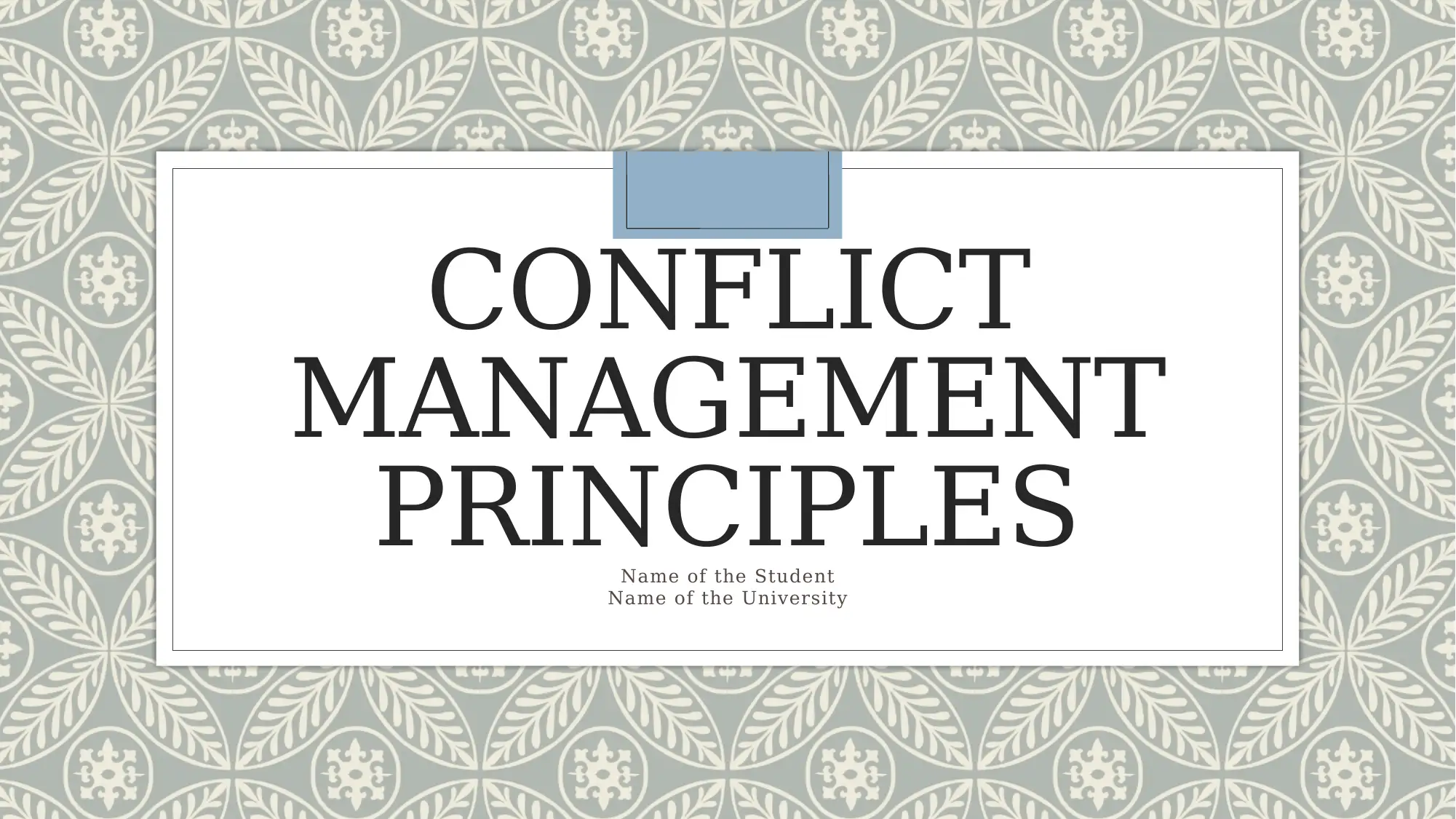
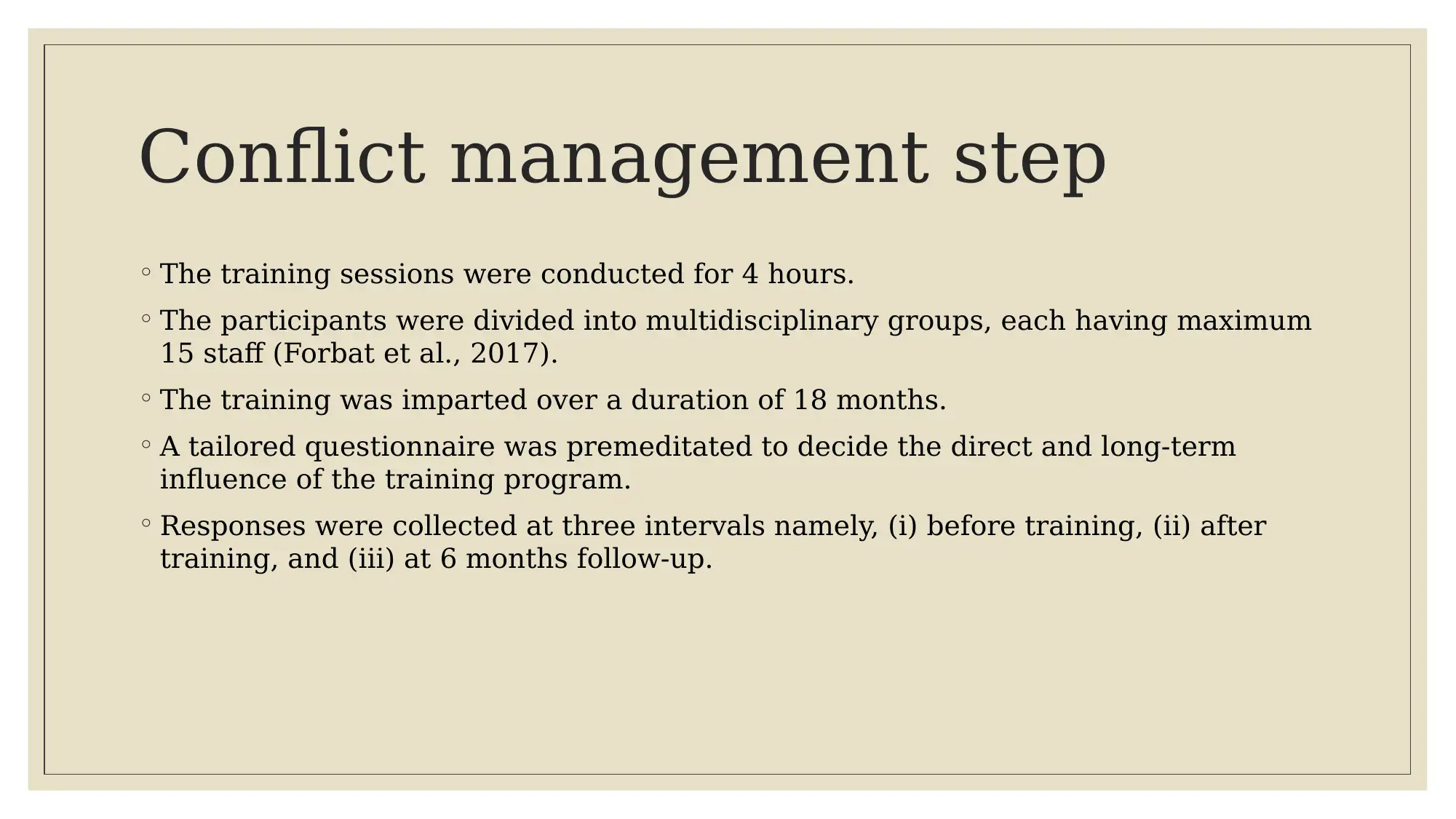
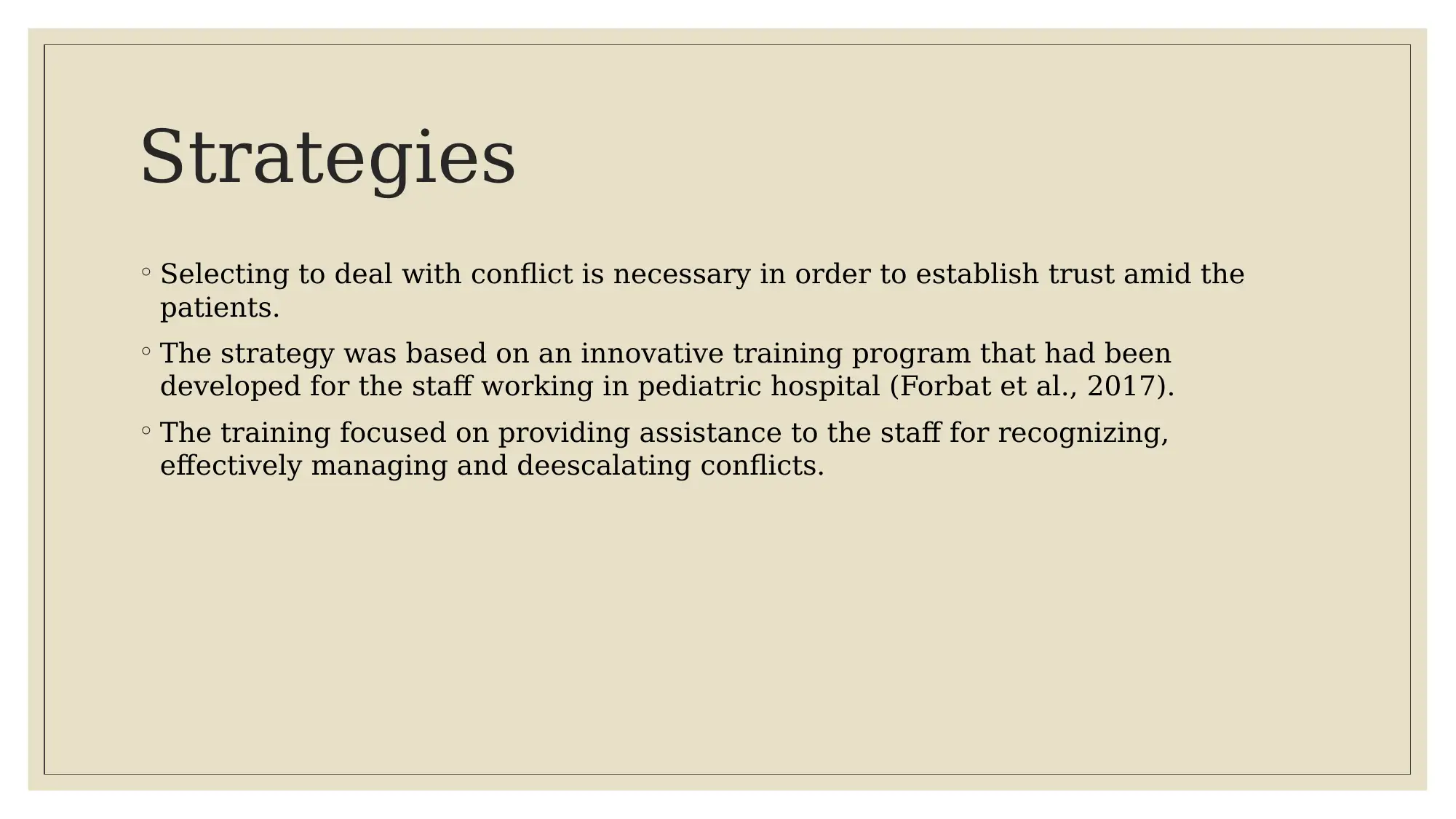

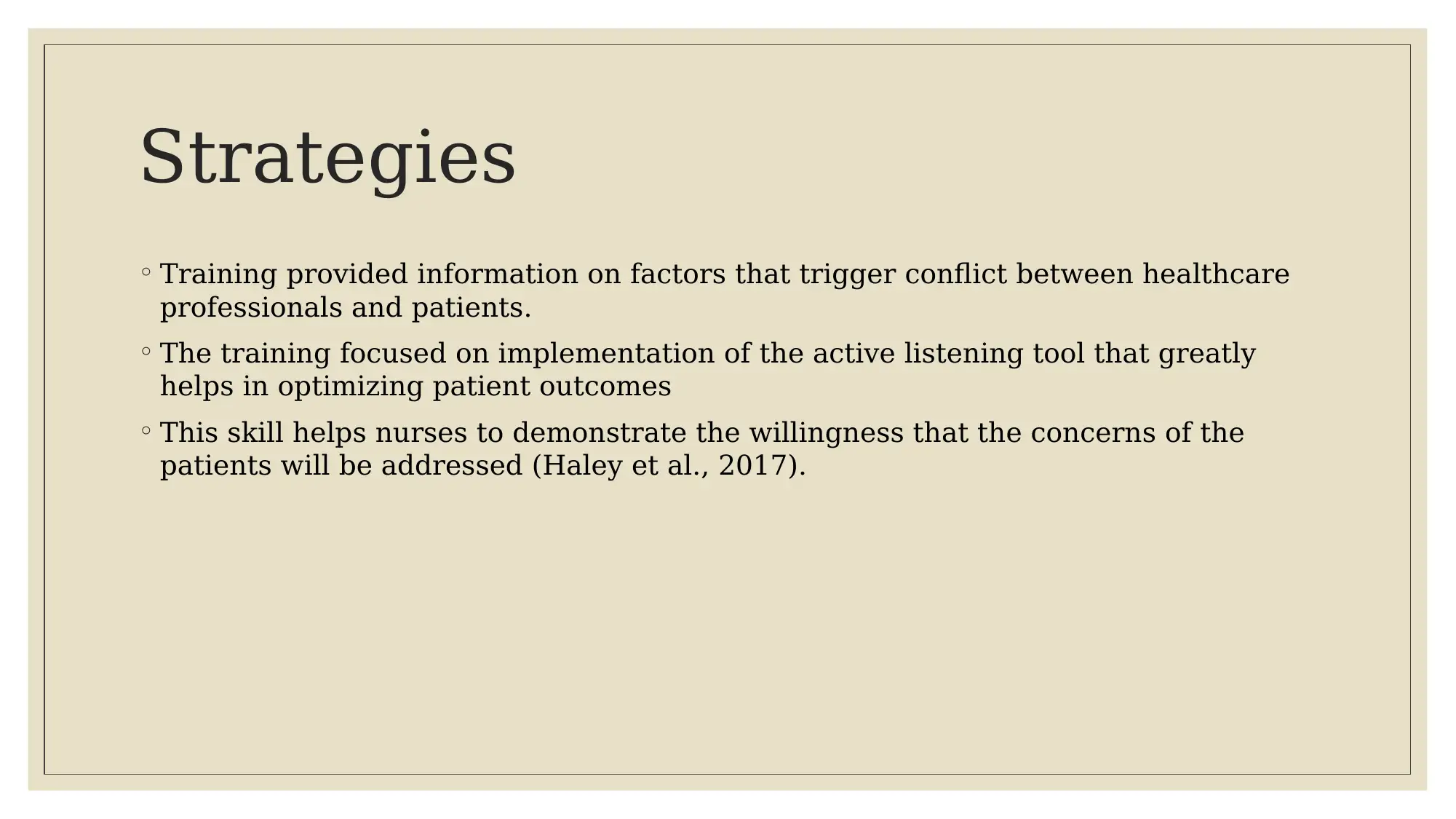
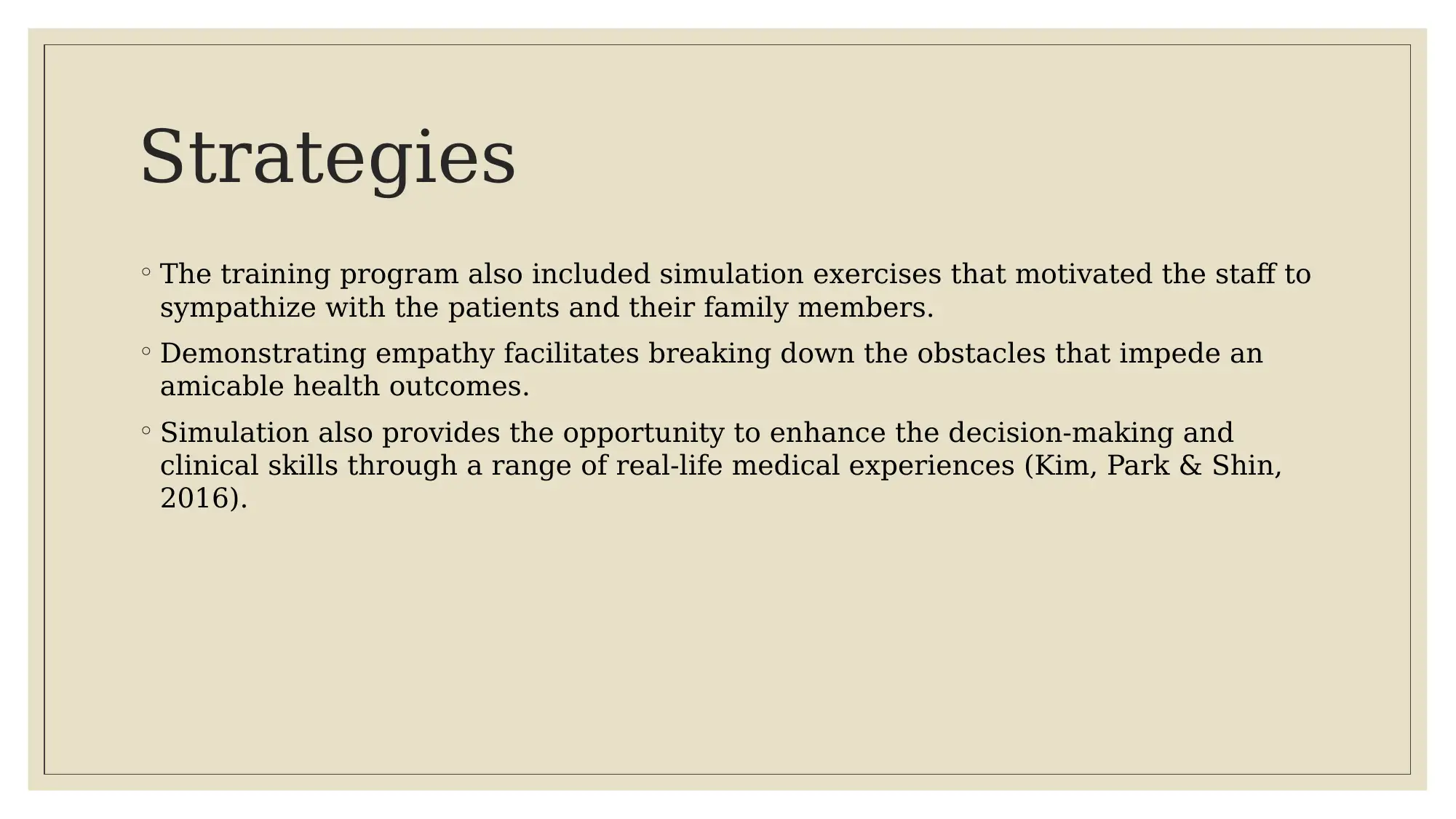
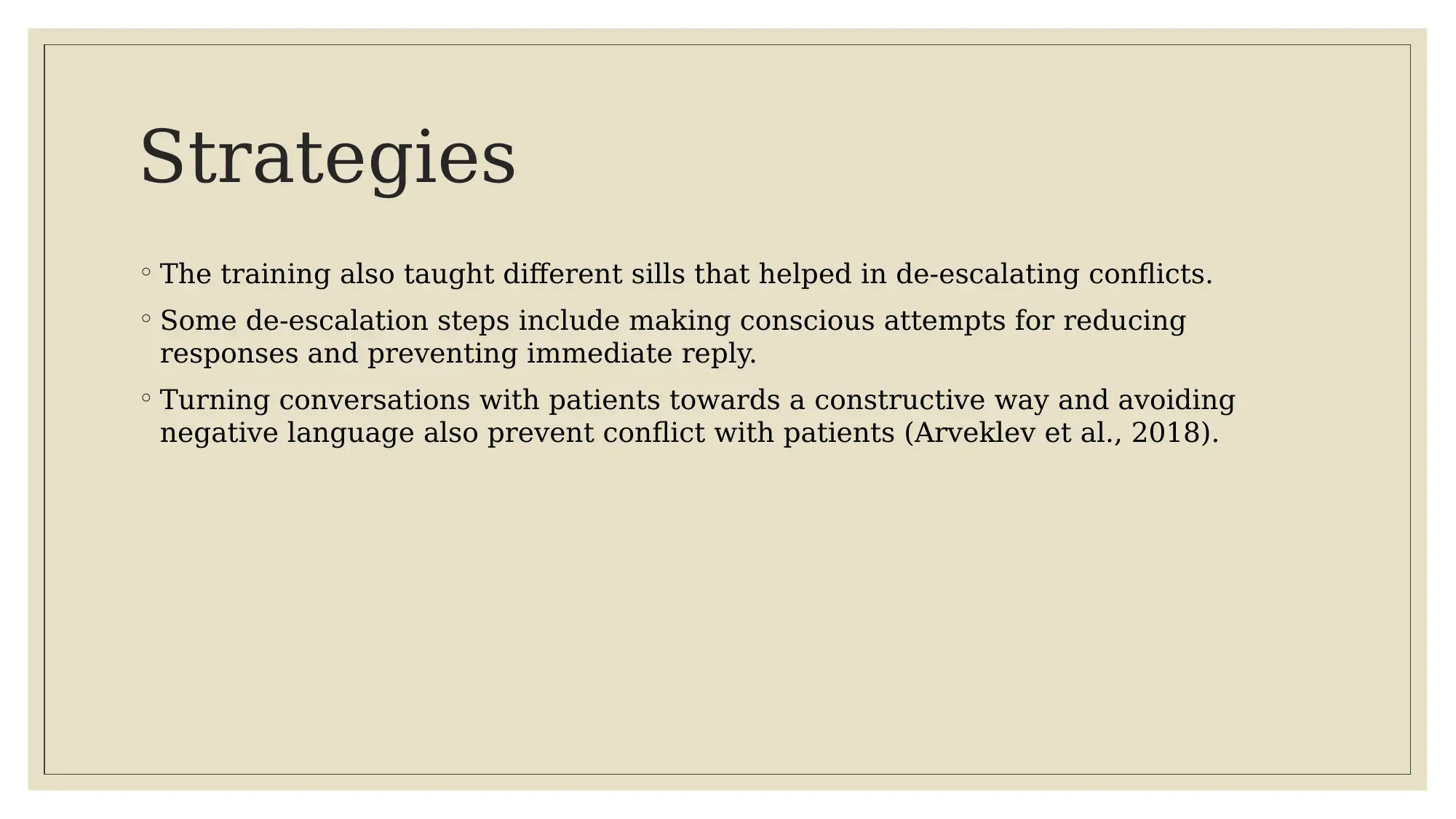
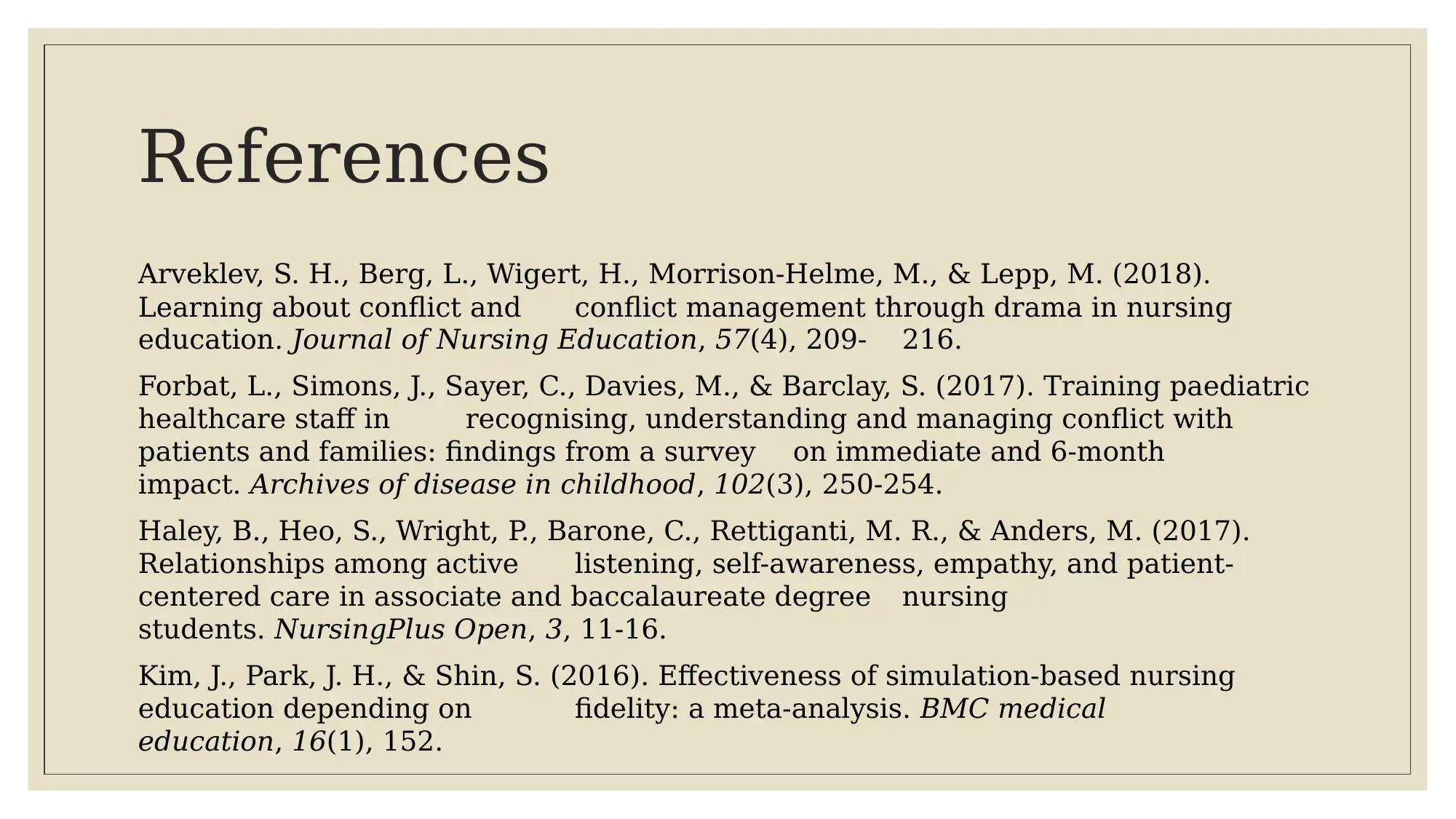






![[object Object]](/_next/static/media/star-bottom.7253800d.svg)